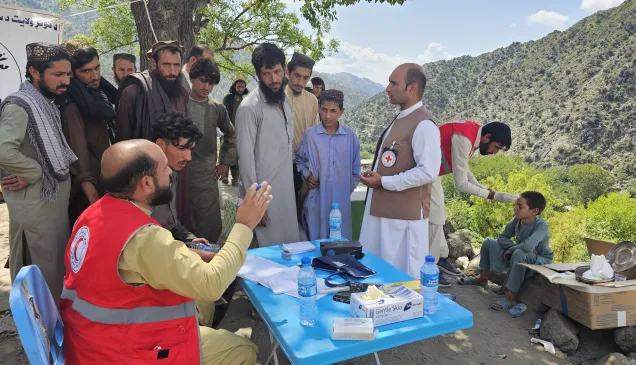Afghanistan: A rehabilitation pathway to mobility and social inclusion
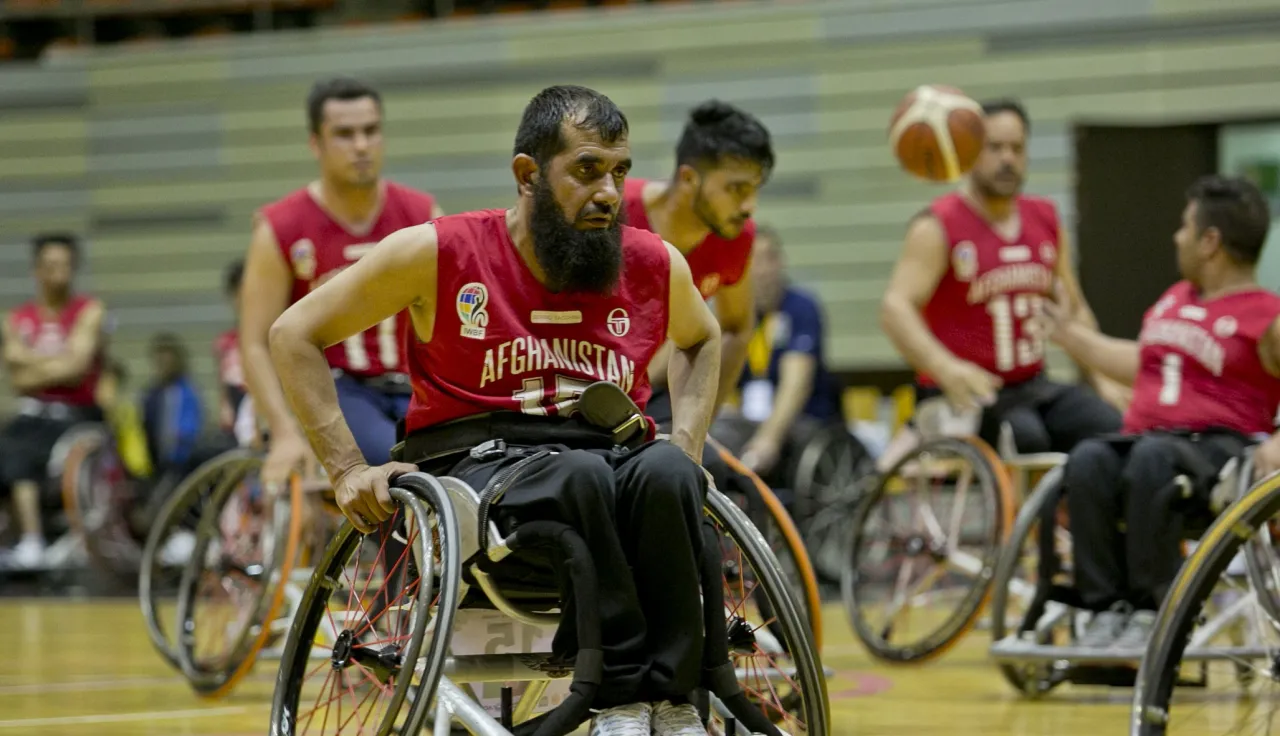
The International Committee of the Red Cross (ICRC) has been at the forefront of humanitarian action in Afghanistan for decades, responding to the needs of people affected by armed conflict and violence across the country. One of its most vital and enduring initiatives is the Physical Rehabilitation Programme (PRP), which aims to restore mobility, dignity, and social inclusion of people with physical disabilities, including victims of mines and explosive remnants of war.
Afghanistan is unique and longstanding in the ICRC’s physical rehabilitation and social reintegration work. The ICRC began operating in the country in 1987, and since then our seven rehabilitation centers across the country have been treating hundreds of thousands of patients, many of whom are victims of landmines or armed conflicts.
In Afghanistan, the ICRC:
- Provides free prosthetic and orthotic devices, and physiotherapy sessions.
- Offers employment, vocational training, and interest-free micro-credit loan opportunities for people with disabilities within ICRC-run centers.
- Provides sports opportunities like wheelchair basketball and futsal.
- Works for the inclusion of people with disabilities within Afghan communities.
In 2024, the ICRC in Afghanistan assisted over 200,000 patients by providing them with prosthetics, orthotics, physiotherapy, wheelchairs, walking aids, and aids for daily living products.
Behind each patient is a unique story.
Mehrnaz: A face that shines with hope
Mehrnaz, a little girl from a remote village in Badakhshan, knew nothing about "disability". All she wanted was to run with her playmates—a simple but unattainable dream.
After days of relentless rainfall, an old muddy wall in Mehrnaz’s home collapsed on her leg, crushing it beyond repair. The pain was sharp, but the deeper wounds were yet to come. At the time, Mehrnaz had no understanding of what it meant to live with a disability. She didn’t grasp how her world - once full of movement, play, and possibility - had suddenly changed.
Mehrnaz visited the ICRC’s physical rehabilitation centre in Faizabad, Badakhshan, and received a prosthesis. Today her life has taken a positive turn and for the first time, she can stand and walk on her own.
Mehrnaz is now looking forward to running and playing with other children. With every step she takes, she moves forward on the path toward a brighter future.
"Seeing Mehrnaz's happy face makes all our efforts worthwhile," says Husna Walizada, prostheses and orthoses technician in Faizabad.
Sodaba’s journey of strength and resilience
In 2014, Sodaba's life took a devastating turn when a road accident left her with a spinal cord injury resulting in paralysis of her trunk and lower limbs. “As weeks turned into months, my condition worsened. Pressure sores developed, each one a painful reminder of my immobility and growing despair. Each passing day seemed to deepen my sense of loss and isolation. I felt trapped in a cycle of helplessness,” said Sodaba.
She turned to the ICRC Physical Rehabilitation Center (PRC) in Gulbahar, Kapisa, Sodaba committed to intensive rehabilitation and thanks to her courage and determination she was able to stand and walk again. But regaining mobility was only part of her journey. She joined the ICRC’s social reintegration program and graduated from class 12 after 5 years of studies from home. Her passion for service led her to enroll in a health institute, where she pursued a professional path in healthcare.
Today, Sodaba works as a receptionist at a government hospital, using her experience and strength to support others.
Tamim’s story of determination and new beginnings
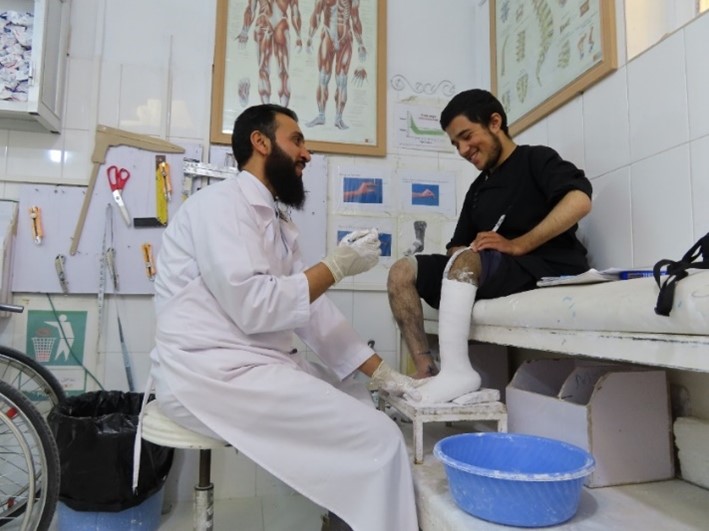
14-year-old Tamim was born with a congenital physical disability that left both his legs deformed. His condition worsened as he grew and each step became harder as the 11-centimeter difference between his legs created a growing barrier to his mobility.
“In 2017 my family sought help from the ICRC Physical Rehabilitation Center (PRC) in Herat. I was given a custom designed orthosis for my left leg, correcting both the shortening and the deformity. It wasn’t just a piece of supportive equipment—it was a lifeline,” explained Tamim. He could walk better and his independence, which had seemed so far out of reach, was suddenly within grasp.
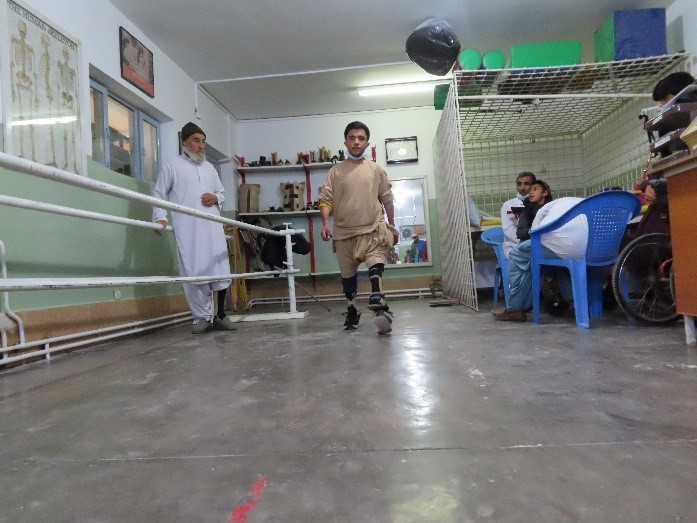
Encouraged by the PRC staff, Tamim decided to enroll in an English language improvement course to strengthen his skills. After finishing his first grade and being directly promoted the third grade, he now proudly studies in the fifth grade, a testament to his courage and perseverance.
Tamim’s journey reminds us that with the right support and unshakeable determination, people can overcome any obstacle. He now marches toward more opportunities and success.
From struggle to success: The journey of Ata Urahman Shinwari
Ata Urahman, a husband and father, lives in the heart of Jalalabad. He relies on a wheelchair for mobility as he has been living with polio since childhood.
After having sought help from the ICRC Physical Rehabilitation Center (PRC) in his city, he received crucial support: university tuition fees and transportation assistance. This allowed him to enroll in university and graduate with a bachelor’s degree in computer science.
Upon learning about the ICRC Vocational Training Program designed to empower people with disabilities, Ata Urahman completed an apprenticeship in mobile phone repairing. He quickly put his skills into action and set up his own workshop. He then secured a loan from the ICRC to lay the foundation for a sustainable business.
"Thanks to the ICRC, I no longer feel alone," he said. "They have helped me rise above my challenges, and now I stand tall in my own way."
From tragedy to triumph: The story of Abdullah
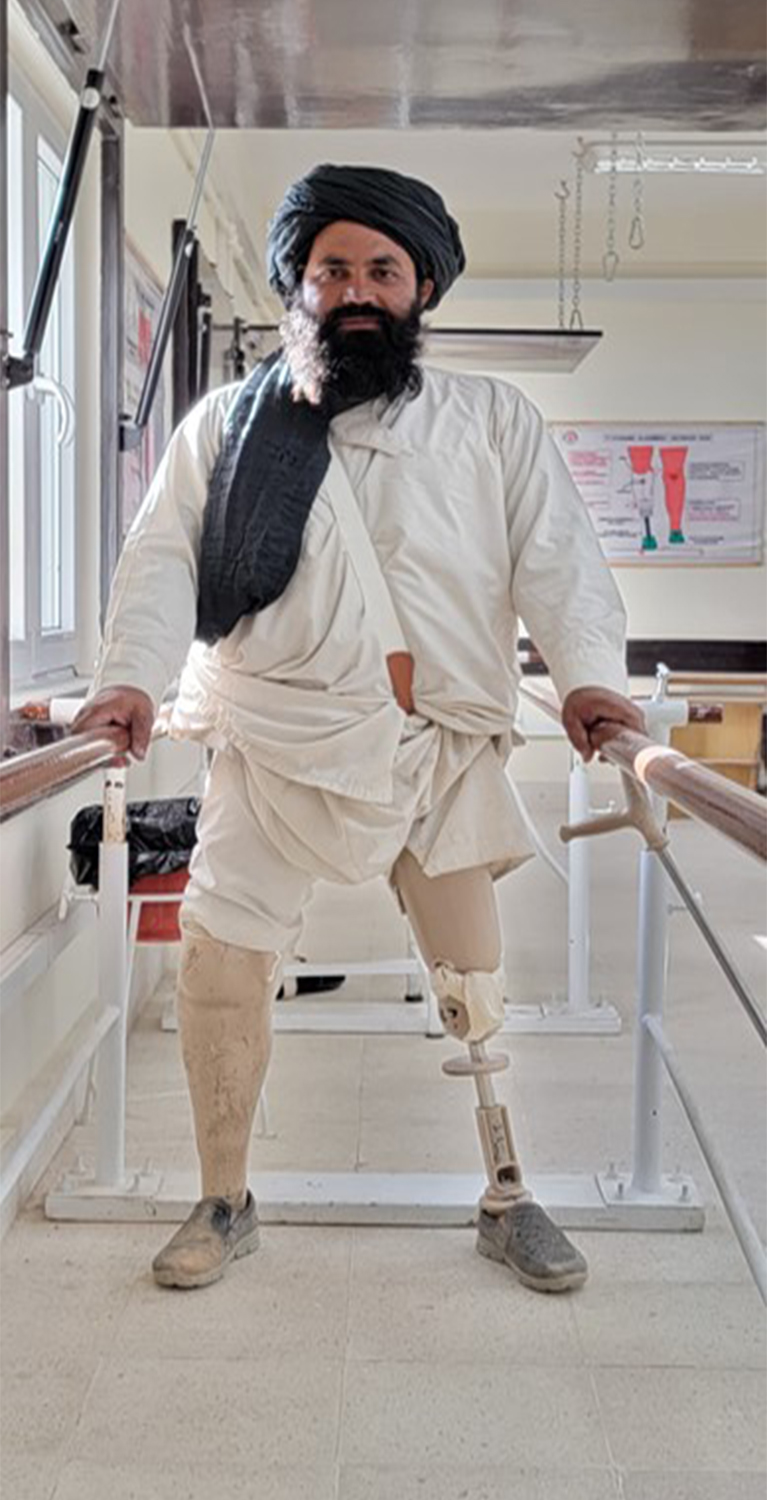
42-year-old Abdullah lives in Sangeen district of Helmand province with his family of nine children. His life changed forever in 2010 when a sudden and deafening blast threw everything into chaos and left him unconscious while he was working on his farm.
When Abdullah regained consciousness in the hospital he faced a devastating reality: both his legs had to be amputated—one above the knee, the other below. He returned home after a month of medical treatment in Helmand and Kabul, physically shattered and emotionally overwhelmed.
Confined to his seat, unable to walk, he felt helpless: “How would I provide for my family? How could life ever return to normal?”
Hope came as friends recommended him to go to the ICRC Physical Rehabilitation Center (PRC) in Lashkar Gah. Abdullah made the journey and received his first wheelchair and two custom-fitted artificial legs. Equipped with prosthetic limbs, he returned to his fields to be able support his children and rebuild his life. Each step was a triumph.
Since that pivotal moment, Abdullah has received eight new sets of artificial limbs through the ICRC’s continued support. "I never thought I would walk again, let alone work in the fields,” he reflects. “But the ICRC gave me my life back.”
Hamida’s story of turning adversity into empowerment
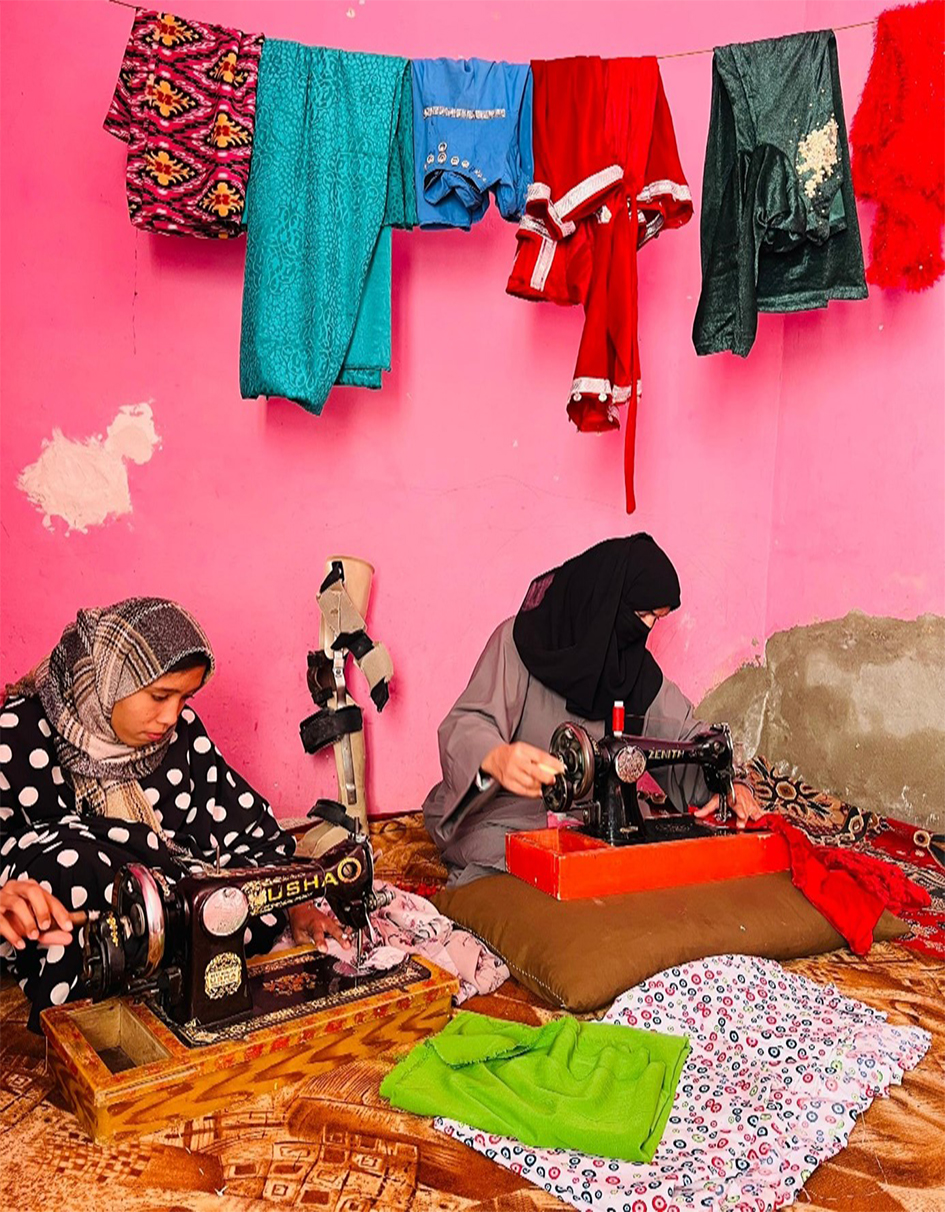
Hamida lives in Mazar-i-Sharif, where the ICRC Physical Rehabilitation Center (PRC) has been supporting people with disabilities since 1990.
She has been living with a polio-induced disability since childhood. Walking is difficult for her, even though prosthetic limbs provided at the center eased her mobility. Hamida also faces the burden of raising her children alone, with no one to lean on but herself.
Life felt like an uphill battle, but Hamida refused to let despair define her future. Introduced to the social rehabilitation department of the PRC, she enrolled in a one-year vocational tailoring course and after graduation opened a tailoring workshop. This allowed her to earn an income in order to feed her children and secure their future.
Her tailoring workshop became more than just a source of income – it became a place of empowerment. For the past two years, Hamida has been employing other women with disabilities, sharing her skills and teaching them to produce garments.
Her journey is a striking example of how determination, paired with compassionate support, can overcome even the greatest challenges.
Gul Wazir and Fatima: A father’s love and a daughter’s fight

In a small village in eastern Afghanistan, Gul Wazir’s life revolves around his daughter, Fatima. She was only eight months old when he noticed her struggle with movement. Fatima is suffering from cerebral palsy (CP), a condition that affects muscle control and coordination.
Determined to help her walk and live a better life, Gul Wazir never gave up in his search for treatment. After months, he found a place that gave him hope – the ICRC Physical Rehabilitation Centre (PRC) in Kabul, a four-hour journey from their home. "I had to find a way to help her," he said. "I could not afford treatment abroad, but I could not afford to give up either."
At the PRC, Fatima began receiving rehabilitation services, including physical therapy designed specifically for children with CP. The progress, though gradual, brought immense joy to Gul Wazir.
“Seeing her improve is the best thing that could happen to me,” he said, his eyes filled with hope.
Fatima’s story is one shared by many families across Afghanistan. Over 26,890 patients with CP are currently receiving treatment at the ICRC’s seven PRCs around the country which offer free and comprehensive therapy services.
The Sports Physical Rehabilitation Programme
The ICRC’s Physical Rehabilitation Programme manages four gymnasiums and two open courts across the country where athletes with disability can practice sports, mainly wheelchair basketball, futsal and volleyball. Sport has proved to be the perfect combination of physical rehabilitation and social inclusion. Together with fun, it boosts the physical well-being of the players, their self-esteem and self-confidence.
Mohammadullah Ahmadi’s journey from bomb victim to captain of his national team
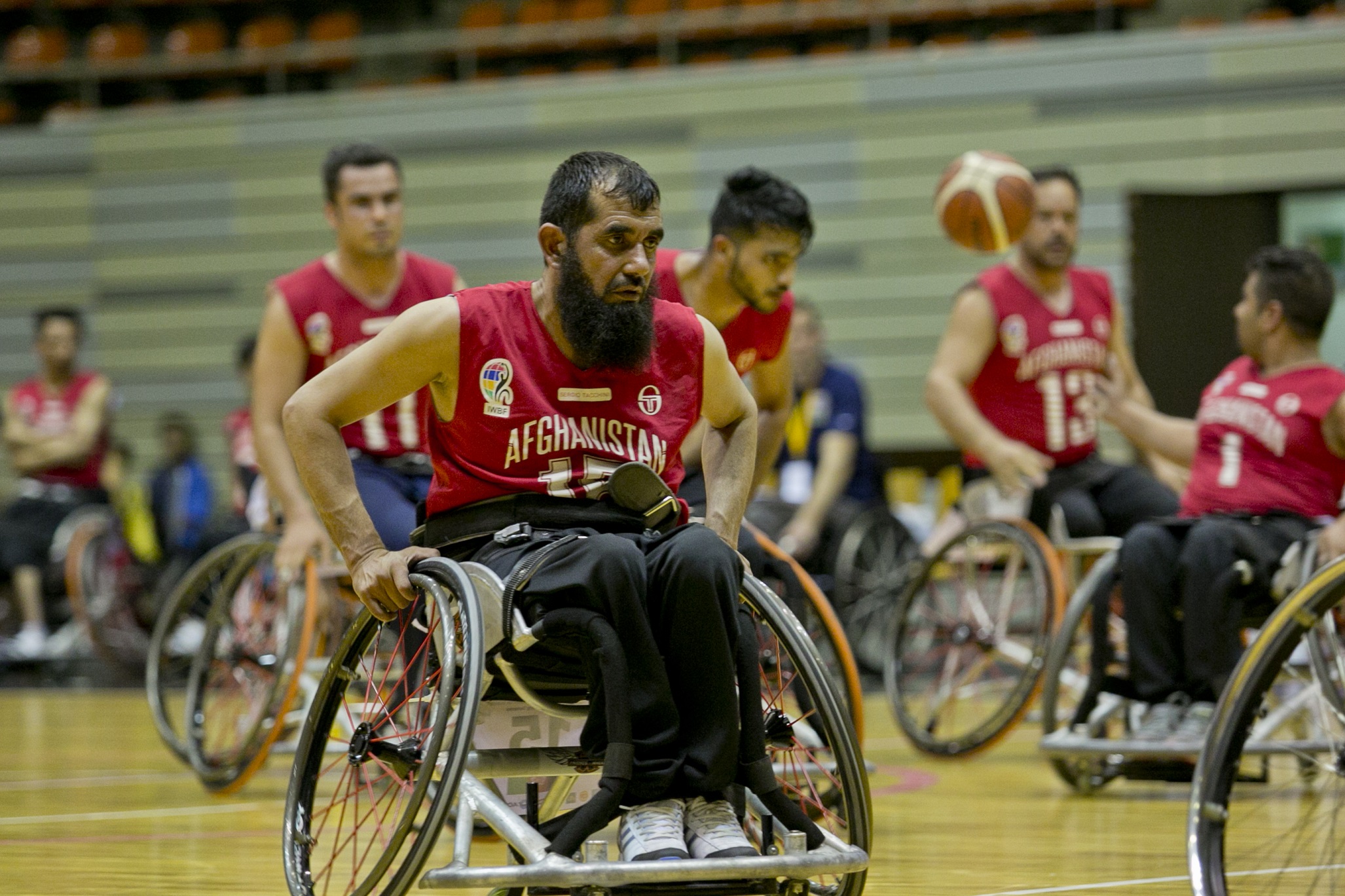
At just 14 years old, Mohammadullah Ahmadi was left paralyzed from the waist down by a bomb explosion outside his father’s shop in Kabul. He began his recovery with the help of the ICRC Physical Rehabilitation Centre, where he received not only physical care but also the hope and tools to rebuild his life.
In 2010, wheelchair basketball became his new passion. He thrived as a player and coach, eventually becoming the captain of Afghanistan’s National Wheelchair Basketball Team. He proudly represented his country in international competitions in Italy, China, Lebanon, Indonesia, and Thailand, as well as in numerous national events.
Today, 46-year-old Mohammadullah stands as an example of dedication and the power of sport. His story is a powerful reminder that with courage, support, and hard work, even the toughest challenges can be overcome. “I am happy with my life now,” he shared.
Exposure to sports allows people with disabilities to experience their residual capacity and how through practice this capacity can increase. This restores hope and triggers the will to rebuild their life.
SOCIO-ECONOMIC INCLUSION – PRP
Recognizing the need for socio-economic inclusion of people with disabilities, who are often victims of armed conflict or violent incidents, the ICRC works to provide them access to education, employment opportunities, interest-free micro-credit loans, vocational training, and sports.
Mahfouza’s struggle to maintain a livelihood for her children
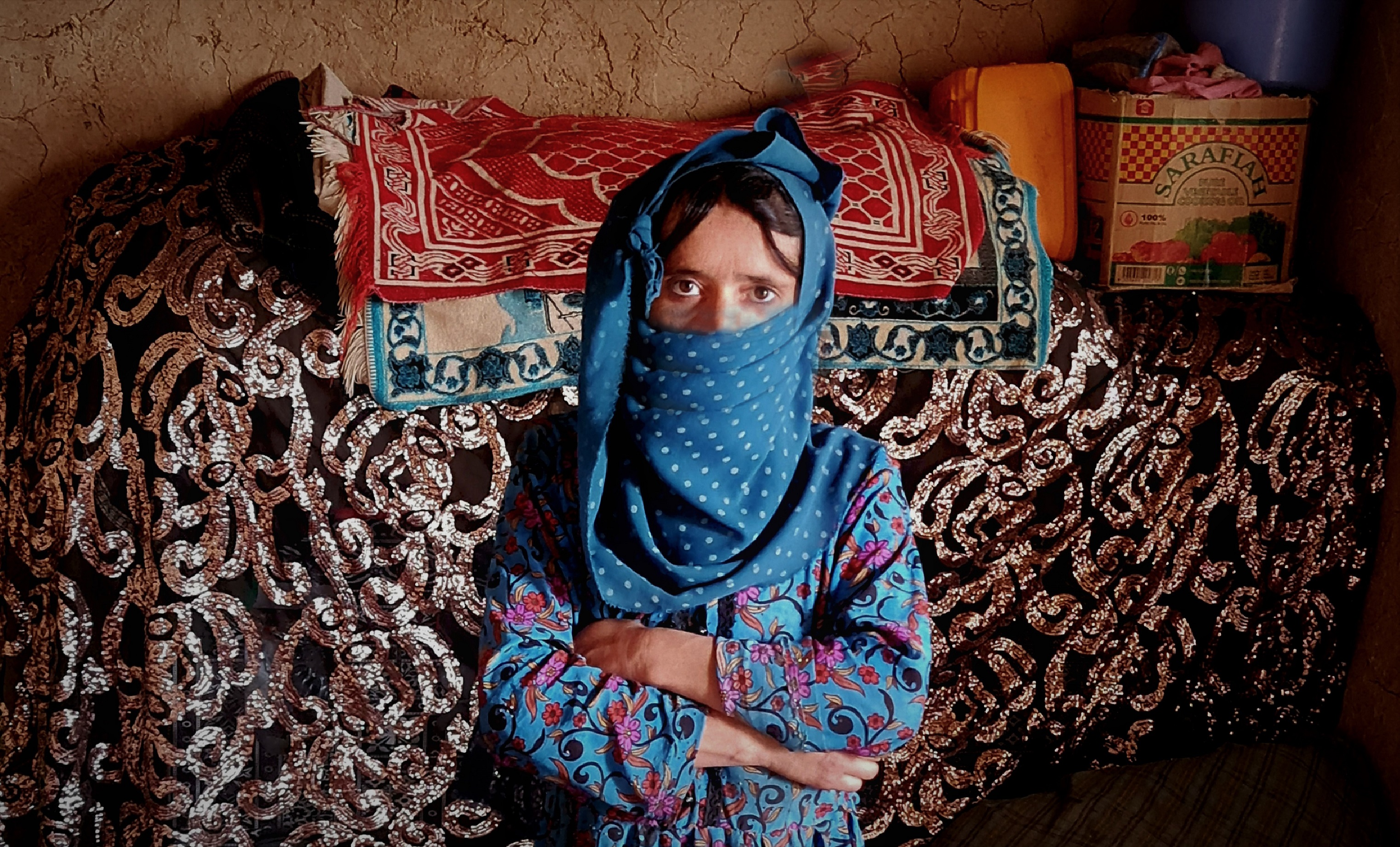
Mahfouza is among the millions of people in Afghanistan in dire need of humanitarian assistance. Decades of armed conflicts, natural disasters and economic challenges have fueled poverty across the country as people struggle to find ways of earning a livelihood. Among those worst-affected are children, the elderly, and people with disabilities.
It has been a long time since Mahfouza, a person with disability and mother of two living in Faizabad, saw a banknote. Pushed into poverty and without any means of livelihood, she said that “a neighbor gave some of their used clothes to my children. They have to share it among themselves – one wears the shirt, while the other wears the trousers.”
To respond to economic hardship, the ICRC provides financial support to people with disability who are breadwinners for their families but have no means of livelihood. In 2024, 6,483 people with disability (5,141 male and 1,342 female) received cash assistance from the ICRC’s Safety Net Program to meet their basic needs.
Learn more about our work in Afghanistan
- Afghanistan: Communities still endangered by mines and unexploded ordnance
- Afghanistan: Vocational training empowers people with disabilities and fosters social inclusion
- Afghanistan: Supporting primary health care for people most in need
- Afghanistan: A year of responding to numerous humanitarian challenges
- Afghanistan: 2024 Operational facts and figures


